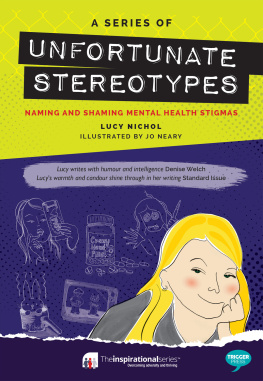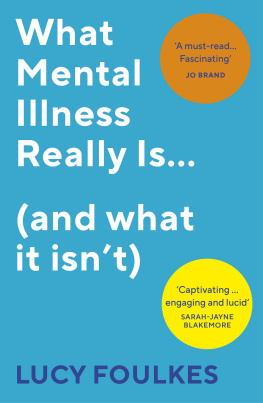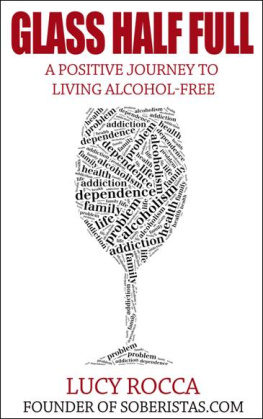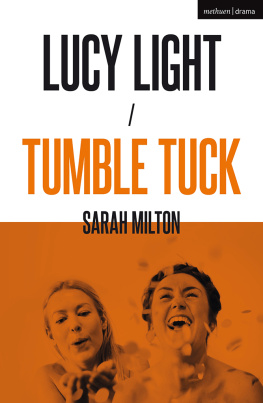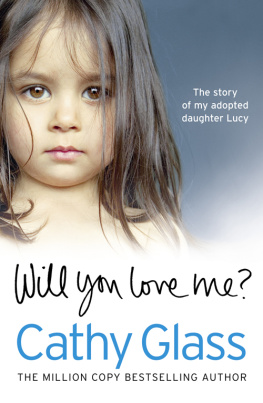

First published in Great Britain 2018 by Trigger Press
Trigger Press is a trading style of Shaw Callaghan Ltd & Shaw Callaghan 23 USA, INC.
The Foundation Centre
Navigation House, 48 Millgate, Newark
Nottinghamshire NG24 4TS UK
www.trigger-press.com
Copyright Lucy Nichol 2018
All rights reserved. No part of this publication may be reproduced, stored in a retrieval system, or transmitted in any form or by any means, electronic, mechanical, photocopying, recording or otherwise, without prior permission in writing from the publisher
British Library Cataloguing in Publication Data
A CIP catalogue record for this book is available upon request from the British Library
ISBN: 978-1-911246-65-7
This book is also available in the following e-Book formats:
MOBI: 978-1-911246-68-8
EPUB: 978-1-911246-66-4
PDF: 978-1-911246-67-1
Lucy Nichol has asserted her right under the Copyright, Design and Patents Act 1988 to be identified as the author of this work
Front cover drawing of Charley Says: Central Office of Information Crown copyright 1970.
Cover design and typeset by Fusion Graphic Design Ltd
Illustrations by Jo Neary
Project Management by Out of House Publishing
Printed and bound in Great Britain by Bell & Bain, Glasgow
Paper from responsible sources

www.trigger-press.com
Thank you for purchasing this book.
You are making an incredible difference.
Proceeds from all Trigger Press books go directly to The Shaw Mind
Foundation, a global charity that focuses entirely on mental health.
It is the parent organisation to Trigger Press, and a large
proportion of the proceeds from the books published go to it.
To find out more about The Shaw Mind Foundation
www.shawmindfoundation.org
MISSION STATEMENT
Our goal is to make help and support available for every
single person in society, from all walks of life.
We will never stop offering hope. These are our promises.
Trigger Press and The Shaw Mind Foundation
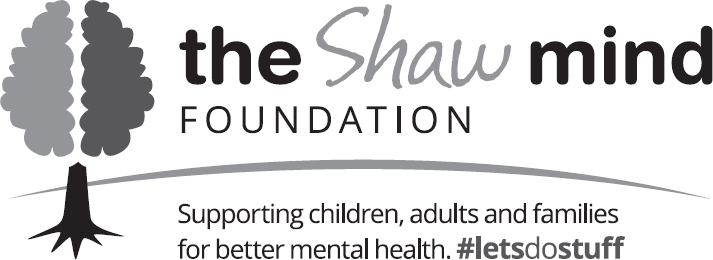
For anyone whos ever been labelled a whiny needy twerp or an attention seeking bastard for bravely battling mental illness.
Contents
INTRODUCTION
Apologies if I offend anyone here, but I dont actually believe stigmata exists. I know there are drawings of it in the Bible and everything, but Im not sure anyone has ever been treated for actual stigmata of the biblical type. It is not a contributing factor to the NHS crisis, as far as Im aware.
I know Im treading a precarious path here, especially given the recent allegations about Stephen Frys apparent illegal blasphemy. Whoopsie daisy, Mr Fry how very dare you?!
But there, I said it. I dont believe in stigmata. Not now, anyway.
Back in the 90s, however, American movie star Patricia Arquette made me believe otherwise, albeit briefly.
Ive always been drawn to horror movies. I dont know why, given that Im an absolute wuss who still gets frightened watching Ghostbusters (remember the old lady in the library? You cant argue with that).
Anyway, Stigmata with Patricia Arquette was one movie that I enjoyed in the late 90s. I say enjoyed I watched it and, without letting on to my then boyfriend (who had his feet up on the sofa, completely unaware), I discreetly checked my hands and feet for bloody holes. An all-too-familiar feeling of dread hit me.
Hidden by the side of the armchair, my fingertips secretly wandered over the centre of my palms. I expected my fingertips to disappear into a bloody void. They didnt, of course.
I checked my feet. They were safely snuggled up in my stripy slipper socks. My blood was not seeping through. How could I be sure, though, that I wasnt bleeding underneath the fabric? These were high quality socks! How could I check my feet without my boyfriend seeing me and realising that his girlfriend was completely crazy or worse still, possessed?
Its amazing how you can convince yourself that your hand aches just by thinking about it.
Nothing came of it that night, but it didnt stop me, days and even weeks later, typing stigmata into Google and hitting the search button.
Oh. My. God. Stigmata phenomena had indeed been reported. That was no movie. That was on the internet. It must be true , I thought. After all, the internet was my new go-to place for facts, wasnt it?
I cant pretend, even today, that I am not slightly nervous writing about this topic, in case the spiritual world picks up on it and inflicts stigmata as a punishment for committing blasphemy or being an unbeliever.
But no. Hang on just a moment. That wont happen. Its all me, after all. The ache I felt in my hands was borne of my own anxious brain and Patricia Arquettes scary movie scenes.
Lets look at it in the cold light of day. What really is stigmata?
Stigmata. Awful bloody marks that Jesus found in his hands and feet after being nailed to the cross. A punishment.
Stigma. Simply, a mark of disgrace.
Thinking I could have stigmata left a mark of disgrace a mark I put there myself for feeling so embarrassed about my anxious thoughts. Was I going mad? I must have been. I was either crazy or possessed. I didnt much fancy either.
Its funny how the world sometimes encourages me and my brain to wish all this stuff on myself. It feels like anxiety makes me weak. And sickly. And crazy. And a failure.
Its probably no surprise that one of my favourite teenage songs was Crucify by Tori Amos. Listening to that song overindulged my adolescent bent towards self-punishment. Because lets face it as a British teenager in the 90s, I wasnt spending my Saturday nights with 90s pop princess Whigfield, a mirror, and a hairbrush, like a lot of other girls. Instead I was chasing the romantic notion of having a dark and twisted existence. And in the 80s you were usually one kind of teenager or the other (labels, again).
But Jesus! (Sorry). Weve got to stop all this. There are enough people in the world giving us a kicking without us doing it ourselves. Which is worse the world calling me crazy and weak, or my belief that I am crazy or weak? The two go hand in hand, but the latter is more damaging. After all, if your mind is feeling vulnerable because youre beating yourself up, it will believe the shite pedalled by ignorant tossers on social media. And it will stop you getting help, lowering your anxiety levels or simply just getting it off your chest. If only Piers Morgan and Katie Hopkins would shut the fuck up for a change, then perhaps another like-minded individual wouldnt hide their anxieties from their nearest and dearest. Perhaps they wouldnt have to stay silent. Perhaps they wouldnt feel ashamed.
Hmm ... marks of disgrace. Theyre everywhere. Hopkins and Morgan seem to revel in driving the nails in. But we shouldnt hold our hands out for them, or indeed anyone else.
You see, were scoring too many own goals. We need to see these perceptions for what they really are. We need to give ourselves a well-earned break. None of this stigma and self-stigma stuff has any real substance. Its time we vaporised it all, over a hot steaming mug of camomile tea. We need to see it for what it is and laugh at the sheer ridiculousness of it.
Next page
